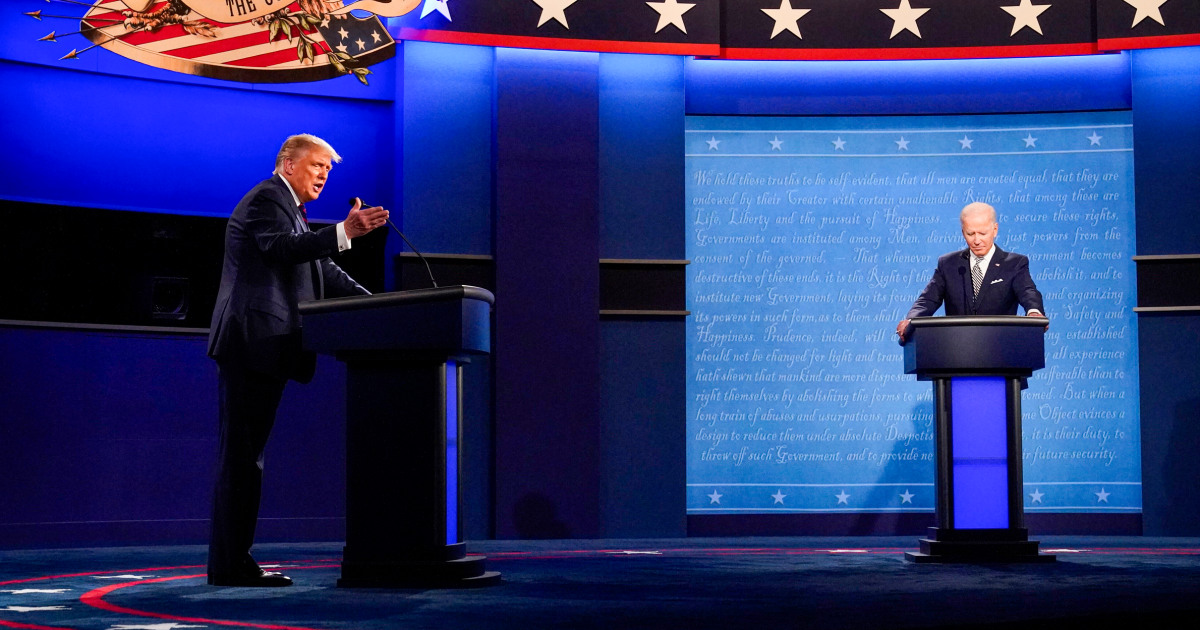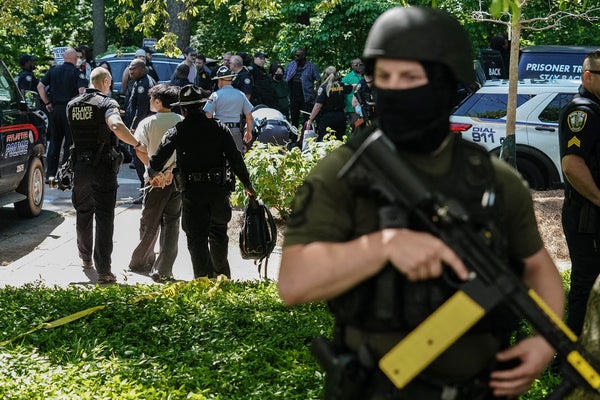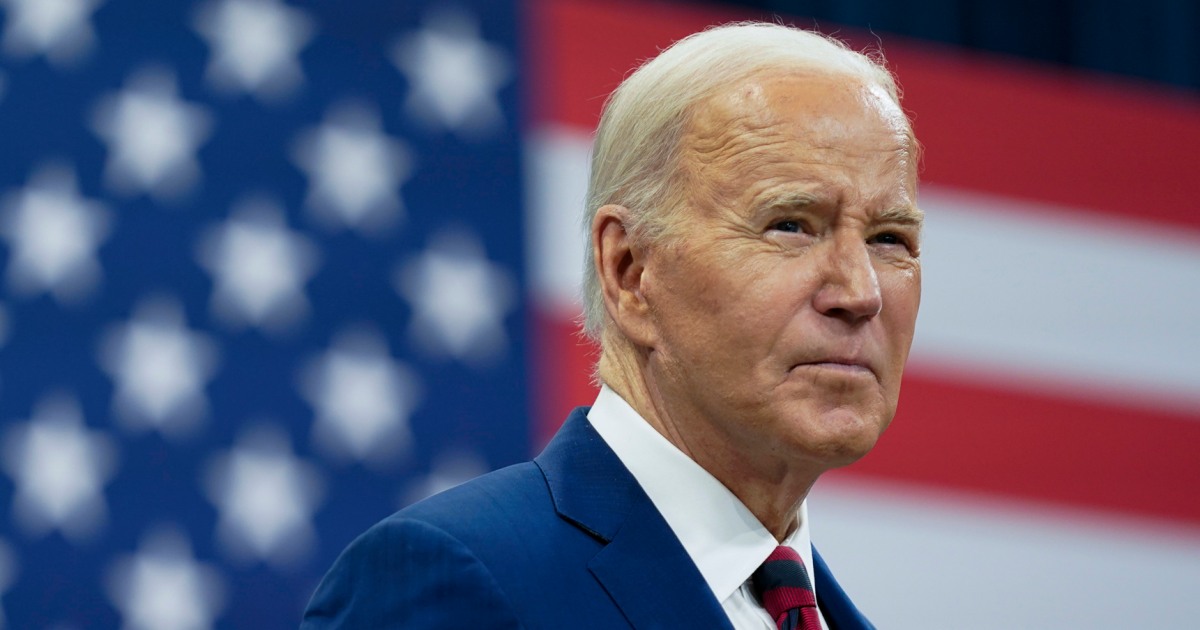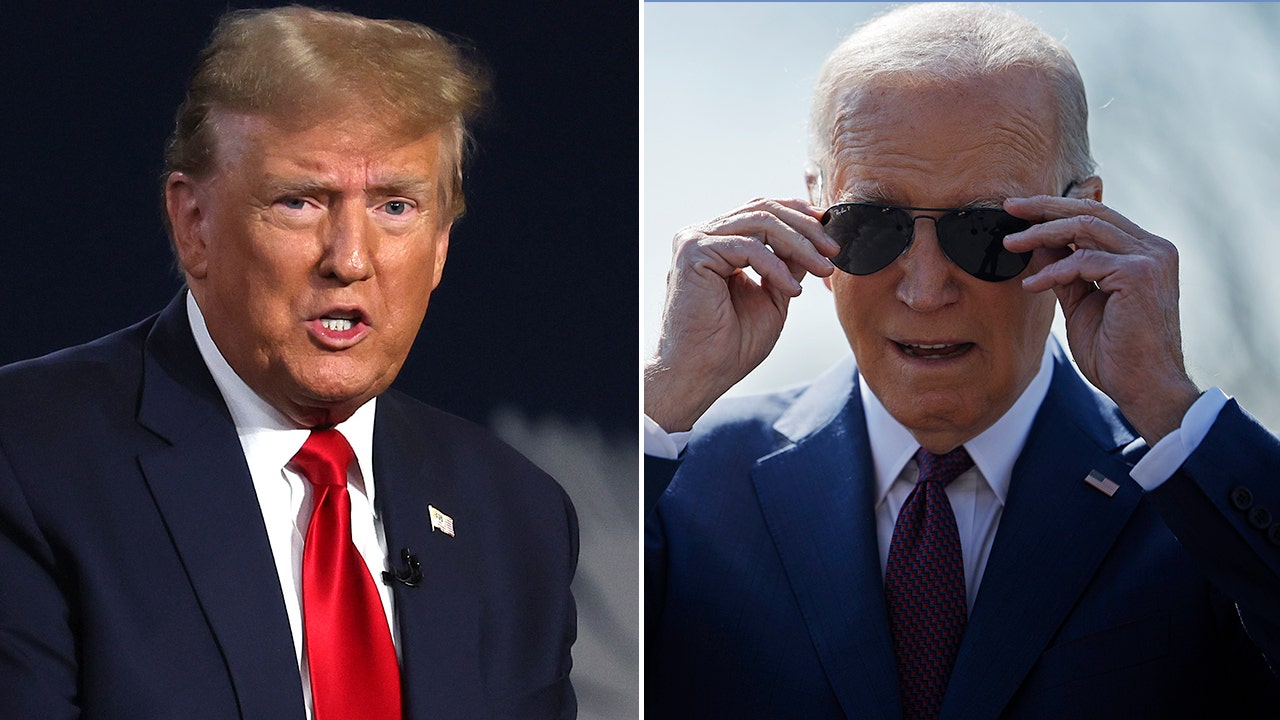Life as the commander in chief is “in a sort of protected bubble,” says Alan Schroeder, a presidential debate historian. “It’s four years of people saying ‘Mr. President,'” a Democratic strategist put it.
Then comes the first debate of a re-election campaign — when the shock of personal confrontation with a hungry adversary has for decades led presidents to lose or perform poorly in that initial matchup, putting their chances of a second term in doubt.
It’s a trend President Joe Biden will be focused on cutting short next week when he and former President Donald Trump meet in Atlanta for their debate on CNN, while Trump will try to knock Biden back like so many challengers before him.
In interviews, a half-dozen former campaign officials and debate experts outlined why so many incumbents have tended to stumble in early debates — and how they think Biden can avoid those pitfalls. As debate preparations intensify, a Biden campaign official threw doubt on the idea that the historical trend would apply to Biden, who has often had showdowns about Trump and forcefully denounced him.
The official said the campaign could not imagine a world where Biden expected deference from Trump on a debate stage.
In a statement, Trump senior adviser Jason Miller said Trump would be ready for the debate, criticizing Biden’s preparations as being “programmed” for the showdown by advisers and saying Trump does “numerous tough interviews every single week and delivers lengthy rally speeches while standing.”
‘Uncomfortable,’ ‘bewildered,’ ’embarrassed’
President Jimmy Carter was widely perceived to have fumbled his first — and only — debate against Ronald Reagan in 1980.
“Are you better off than you were four years ago?” Reagan challenged voters in what became a theme damaging to Carter’s campaign.
Incumbents’ historically rocky first debate performances stem from their having experienced deference in the Oval Office, experts said.
“Once the president is in the office, and especially after four years in the office, they are in a sort of protected bubble where they don’t hear much conflicting information,” said Schroeder, who has written a book about the history of presidential debates.
An incumbent on the debate stage can require “a sort of transition almost back to being a normal citizen,” he said.
Samuel Popkin, who played Reagan during Carter’s debate preparations, said, “Every president thinks, ‘I know how to run a presidential campaign because I won one a few years ago.’”
Popkin studied Reagan’s remarks and wrote a memo about how to deflate his stories. But when it came to rehearsing a debate with Popkin playing Reagan, Carter “got so uncomfortable” and “embarrassed,” Popkin said.
Popkin described the tense rehearsal in his book, “The Candidate,” writing that Carter was “bewildered” and that he suggested they stop after only 11 minutes of practice.
“The president looked lonely and vulnerable when he heard Reagan’s critique in front of his wife, his closest friends, and his inner circle,” Popkin wrote.
Four years later, Reagan was the incumbent facing criticism, with The New York Times reporting that his advisers found he was on the defensive.
Schroeder said, “Even Bill Clinton, who was a really good debater, his first debate against Bob Dole in 1996 as an incumbent president was not his finest moment by any stretch of the imagination.”
Former campaign officials emphasized the need for incumbents to strike contrasts with their challengers, rather than solely defend their records.
“Usually incumbents in some ways have the harder job, because they’re defending the sitting record,” said Sara Fagen, who worked on President George W. Bush’s 2004 re-election campaign.
Voters thought Democratic nominee John Kerry won the first debate against Bush by about 2-to-1, according to a Pew Research Center poll.
In a poll question asking voters to use one word to describe the candidates’ performances, the top negative word for Bush was “defensive.”
“For most incumbents, you want to make the election about a choice, not a referendum,” Fagen said.
President Barack Obama faced a similar reckoning during his 2012 debate preparation.
“If it’s a referendum on the incumbent, the incumbent usually loses,” Obama 2012 campaign manager Jim Messina said he told Obama. “If it is a choice between the two candidates, you’ll win.”
Messina said he instructed Obama “don’t chase rabbits,” meaning do not go down a hole in self-defense. He said Obama was on the defensive during several questions of his first 2012 debate against Republican nominee Mitt Romney.
About two-thirds of voters thought Romney outperformed Obama in the first debate, according to CNN and Pew polls.
Despite Obama’s preparation, he “was rusty,” Schroeder said. “He just seemed a little uncomfortable with the whole exercise.”
After the first debate, Messina said, Obama was “much more focused.”
“The president blew off one of the last debate sessions before the first debate,” Messina said. “He definitely did not do that after the first debate.”
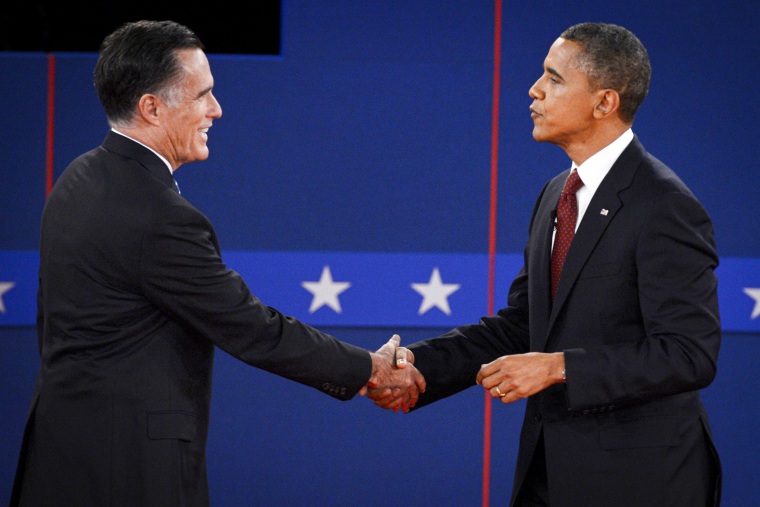
Messina recalled seeing a video of himself in the spin room after the second debate with a “glow about me.”
“I look like a 10-year-old boy who just got free beer for the first time because I was so happy, because he had just driven the choice narrative over and over and over,” Messina said.
The Biden campaign also appears to be digging into the choice narrative, previewing Biden’s debate preparation by noting that he “has gotten increasingly punchier in recent remarks about Trump and plans to carry that theme through to the debate, while still projecting himself as the wise and steady leader in contrast to Trump’s chaos and division.”
Just a week before the first debate, the Biden campaign announced a $50 million advertising campaign, part of which is going to TV spots that strike a contrast between Biden’s and Trump’s characters.
The stakes
The debate next month holds a unique place in history not only for its unprecedented early date. It will be the first time two candidates who have held the Oval Office will face off. And it’s unclear how much debates alone alter voting preferences come November.
“Ultimately, it’s been very difficult for anybody to demonstrate that performances in presidential debates have changed voters’ preferences,” said Lynn Vavreck, a professor of American politics and public policy at UCLA.
Fagen said voters ahead of November are “so already entrenched.” She said this debate “probably matters more than more recent elections, just because of the dynamics of the race,” pointing to each candidate’s challenges and the fact that both have held the presidency.
Biden and Trump are neck and neck, according to polling. There is also a large and ideologically diverse swath of voters who dislike both candidates — but may yet choose one of them in the fall.




